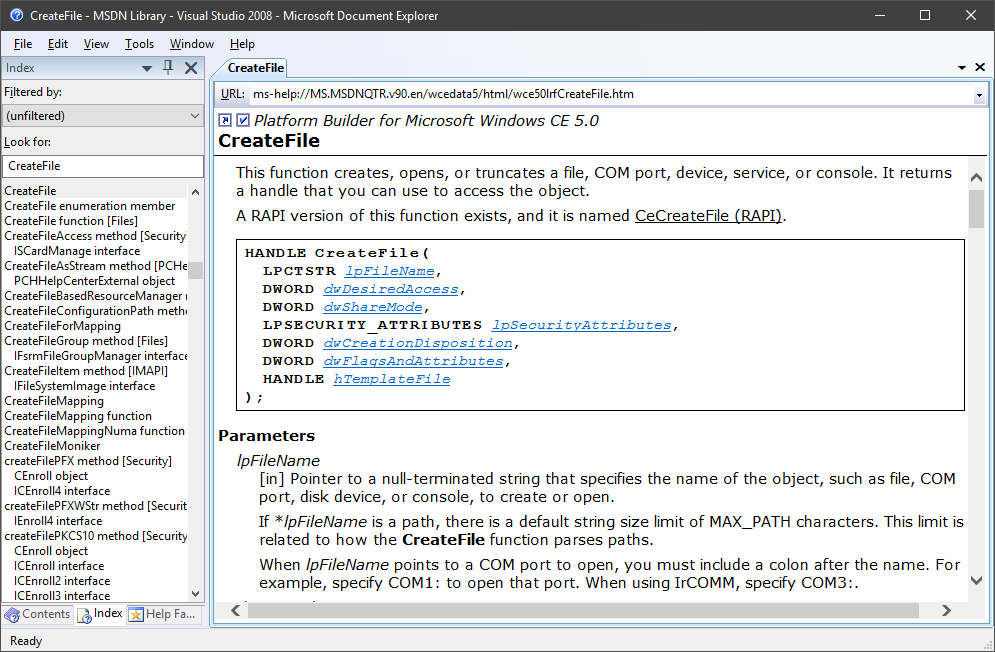A while back [I blawgd about how to get the MSDN library for offline use](https://blag.nullteilerfrei.de/2017/12/21/get-the-msdn-library-for-offline-use/). However, the Help Viewer has its problems. I won't list all of its problems, but it was certainly a bad candidate to integrate Win32 API documentation support to Ghidra. There is [a pretty neat project by Laurence Jackson](http://laurencejackson.com/win32/), but I think I just found something a little better even: Microsoft provides [a download of the MSDN Library for Visual Studio 2008 SP1, stand-alone, offline, as an ISO](https://www.microsoft.com/en-us/download/details.aspx?displaylang=en&id=20955) - smell this, Help Viewer:
 So this is nice, but the main point of this exercise was to integrate this into Ghidra. If that's something you care about, read on.
So this is nice, but the main point of this exercise was to integrate this into Ghidra. If that's something you care about, read on.
 So this is nice, but the main point of this exercise was to integrate this into Ghidra. If that's something you care about, read on.
So this is nice, but the main point of this exercise was to integrate this into Ghidra. If that's something you care about, read on.